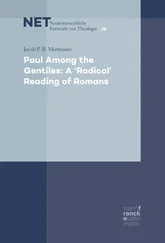Charles Gore - St. Paul's Epistle to the Romans - A Practical Exposition. Vol. I
Здесь есть возможность читать онлайн «Charles Gore - St. Paul's Epistle to the Romans - A Practical Exposition. Vol. I» — ознакомительный отрывок электронной книги совершенно бесплатно, а после прочтения отрывка купить полную версию. В некоторых случаях можно слушать аудио, скачать через торрент в формате fb2 и присутствует краткое содержание. Издательство: Иностранный паблик, Жанр: foreign_religion, foreign_antique, foreign_prose, на английском языке. Описание произведения, (предисловие) а так же отзывы посетителей доступны на портале библиотеки ЛибКат.
- Название:St. Paul's Epistle to the Romans: A Practical Exposition. Vol. I
- Автор:
- Издательство:Иностранный паблик
- Жанр:
- Год:неизвестен
- ISBN:нет данных
- Рейтинг книги:3 / 5. Голосов: 1
-
Избранное:Добавить в избранное
- Отзывы:
-
Ваша оценка:
- 60
- 1
- 2
- 3
- 4
- 5
St. Paul's Epistle to the Romans: A Practical Exposition. Vol. I: краткое содержание, описание и аннотация
Предлагаем к чтению аннотацию, описание, краткое содержание или предисловие (зависит от того, что написал сам автор книги «St. Paul's Epistle to the Romans: A Practical Exposition. Vol. I»). Если вы не нашли необходимую информацию о книге — напишите в комментариях, мы постараемся отыскать её.
St. Paul's Epistle to the Romans: A Practical Exposition. Vol. I — читать онлайн ознакомительный отрывок
Ниже представлен текст книги, разбитый по страницам. Система сохранения места последней прочитанной страницы, позволяет с удобством читать онлайн бесплатно книгу «St. Paul's Epistle to the Romans: A Practical Exposition. Vol. I», без необходимости каждый раз заново искать на чём Вы остановились. Поставьте закладку, и сможете в любой момент перейти на страницу, на которой закончили чтение.
Интервал:
Закладка:
(3) To all the Christians at Rome, then, 'called to be saints,' i.e. called into the consecrated body and to the consecrated life, St. Paul is writing. He does not say 'to the church which is at Rome,' as in the other epistles of this date he writes 'to the church at Corinth' and to 'the churches of Galatia.' And though this might be accidental, yet probably it is due to the fact that St. Paul thought of the Roman Christians as individuals who, many of them, had been converted elsewhere and for various reasons had come to be living at Rome; so that in fact they had hardly yet attained the consistency of a single ordered church.
(4) And to these Christians he gives his greeting by wishing for them those gifts which may be taken as summing up the blessings of Christ about which this epistle is to say so much – 'grace,' which is God's love to us in actual operation, and 'peace,' which is the state of mind of one who realizes God's love – from the Father and the Son. This benediction is, however, but a Christian form of that of Aaron, 'The Lord make his face to shine upon thee, and be gracious unto thee: the Lord lift up his countenance upon thee, and give thee peace 46 46 Num. vi. 25, 26; see Hort, First Ep. of Peter , p. 25.
.'
Paul, a servant of Jesus Christ, called to be an apostle, separated unto the gospel of God, which he promised afore by his prophets in the holy scriptures, concerning his Son, who was born of the seed of David according to the flesh, who was declared to be the Son of God with power, according to the spirit of holiness, by the resurrection of the dead; even Jesus Christ our Lord, through whom we received grace and apostleship, unto obedience of faith among all the nations, for his name's sake: among whom are ye also, called to be Jesus Christ's: to all that are in Rome, beloved of God, called to be saints: Grace to you and peace from God our Father and the Lord Jesus Christ.
There is, I believe, nothing in the above analysis which is not implied at least in the original language of this salutation. And it is a remarkable summary of the grounds of St. Paul's Christian belief, more exact and explicit than the 'Remember Jesus Christ, risen from the dead, of the seed of David, according to my gospel 47 47 2 Tim. ii. 8.
.' There are some points in it which require further notice: —
1. The use of 'spirit of holiness' in connexion with Christ (in ver. 4). Here it is put in antithesis to 'the flesh,' i.e. Christ as He appeared to the outward eye in His natural manhood; and describes, vaguely and without further definition, the higher nature of which, behind His visible manhood, men became conscious 48 48 Cf. 1 Tim. iii. 16, 'justified in the spirit,' where the use is approximately the same.
. Elsewhere 'spirit' is more exactly used to describe (1) the human spirit in us or in Christ 49 49 See 1 Thess. v. 23; 1 Cor. v. 5; James ii. 26; Matt. v. 3; xxvi. 41; 1 Pet. iii. 18; Mark viii. 12.
; (2) disembodied persons or angels or devils 50 50 Luke xxiv. 39; Heb. xii. 23; i. 14; Matt. viii. 16, &c.
; (3) the Holy Ghost 51 51 Matt. iii. 16; Luke x. 21, R.V. &c.
; (4) the being of God 52 52 John iv. 24.
; (5) generally what has will and consciousness, as opposed to the merely external, the 'flesh' or the 'letter 53 53 John vi. 63; Rom. ii. 29; 2 Cor. iii. 6.
.' Sometimes, as in 2 Cor. iii. 17, it is hard to feel sure about the exact shade of meaning.
2. We have here, in a very brief compass, St. Paul's conception of 'Christian evidences.' He begins from Christ, 'according to the flesh.' 'And why,' asks Chrysostom, 'did he not begin from the higher side? Because Matthew also, Luke and Mark, begin from the lower. One who would lead others upwards must begin from below. And this was in fact the divine method. First they saw Him (Christ) as man on the earth, and then perceived Him to be God.' It was, in other words, through the experience of His manhood that they arrived at His Godhead. And the evidence of His divine sonship was in part miraculous; but it was not mere miracle. It was miracle 'according to a spirit of holiness.' It was miracle filled with spiritual and moral meaning. It was a resurrection vindicating perfect righteousness.
3. The phrase 'the resurrection of the dead' is translated more exactly by Wiclif 'agenrisynge of dead men ! Christ's resurrection is the great example of what is to be general.
4. The obedience of faith exactly describes the human faculty as it showed itself in St. Paul himself at his conversion. With him to believe was, without any possibility of question, to obey Him whom he believed, and St. Paul knows no faith which does not involve a like obedience; cf. xv. 18; xvi. 26; 1 Pet. i. 2.
CHAPTER I. 8-17.
St. Paul's introduction
The salutation is immediately followed by a passage in which St. Paul introduces himself specially to the Christians at Rome. He had a delicate task to perform. The Roman Christians had been gathered probably from many parts of the empire, because Rome was the centre of all the world's movements, and adherents of whatever was going on in the empire were sure by force of circumstances to find their way to Rome. Thus, though no apostle had yet preached at Rome, Christians had gathered there. Many of them had not seen St. Paul's face. But they had heard of him, no doubt, in Jewish circles as a very dangerous man who was upheaving and subverting established traditions and principles. He was a man to be looked at askance. He must introduce himself therefore carefully. It was of the greatest importance to him, the Apostle of the Gentiles, that he should gain full recognition among these Christians at Rome, the centre of the Gentile world. We observe then in this introduction what a gentleman, if I may say so, in the very deepest sense of the term, St. Paul shows himself to be. He speaks indeed with an admirable mixture of tact and candour. We can hardly conceive any better address in a delicate situation than this address of St. Paul with which he makes his approach to the Roman Christians.
He begins with what is pleasant for them to hear, namely, that the report of their faith throughout all the world is a good one. 'I thank my God through Jesus Christ for you all that your faith is proclaimed throughout the whole world.' Then he goes on to add, as is usual in his introductions, that he continually prays for them. It was a remark of General Gordon's that it makes a great difference in our feeling towards a stranger if before we meet him we have prayed for him. And we may with equal truth say that it makes a great difference in the feelings of others towards us if they have reason to believe that we have prayed for them. St. Paul therefore gives himself this advantage. He says, 'God is my witness, whom I worship in my spirit in the gospel of his Son, how unceasingly I make mention of you always in my prayers.' Then he goes on to tell them that he not only prays for their welfare, but prays that he may have the advantage of seeing them face to face and knowing them. And here he puts his desire to see them on the true ground. He wants to visit them because he has something of the utmost value to give them – that he may 'impart unto them some spiritual gift.'
Whatever may be the exact nature of the 'spiritual gift' St. Paul is thinking of, it is clearly something for which his bodily presence is necessary. There is some divine power which he as an apostle can communicate to them only when he comes among them. In this sense he means that 'when he comes to them he will come in the fulness of the blessing of Christ 54 54 Rom. xv. 29.
.' He implies that the Roman Christians needed him and must wait for him to supply their deficiencies. But we observe that with beautiful tact he at once balances this assertion of a divine power entrusted to him for their good, by representing his own need of them. He does not speak de haut en bas as if he had everything to give and nothing to receive. No: as the people depend on the apostle for spiritual gifts, so he depends on the people for spiritual encouragement. He must live by the experience of their spiritual growth. 'I desire,' he says, 'to come to you that I may impart unto you some spiritual gift, to the end that ye may be established' (built up and made strong in the faith). And then he interprets: – that is 'in order that I with you may be encouraged 55 55 'To encourage' and 'encouragement' are probably the best words to translate what in our Bible is rendered by 'comfort.'
among you, each of us by the other's faith, both yours and mine.'
Интервал:
Закладка:
Похожие книги на «St. Paul's Epistle to the Romans: A Practical Exposition. Vol. I»
Представляем Вашему вниманию похожие книги на «St. Paul's Epistle to the Romans: A Practical Exposition. Vol. I» списком для выбора. Мы отобрали схожую по названию и смыслу литературу в надежде предоставить читателям больше вариантов отыскать новые, интересные, ещё непрочитанные произведения.
Обсуждение, отзывы о книге «St. Paul's Epistle to the Romans: A Practical Exposition. Vol. I» и просто собственные мнения читателей. Оставьте ваши комментарии, напишите, что Вы думаете о произведении, его смысле или главных героях. Укажите что конкретно понравилось, а что нет, и почему Вы так считаете.












